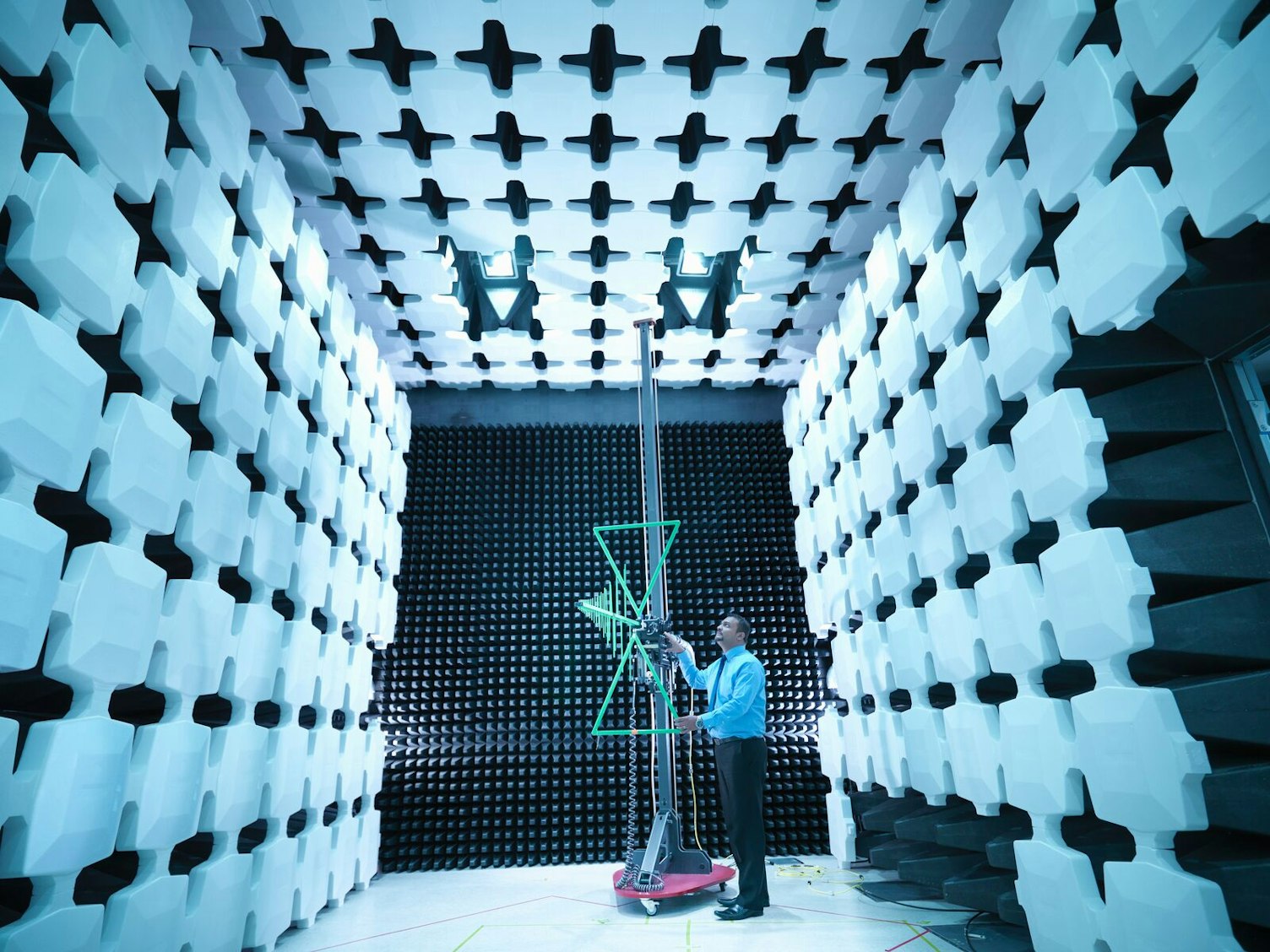Electronic devices must conform to market requirements for electromagnetic compatibility (EMC). They must not interfere with other electronic devices and be immune to interference from other devices or there is the risk of malfunction, interference and regulatory noncompliance.

EMI or EMS?
To ensure the safe and effective use of electronic devices, most countries now enforce EMC regulations. All electronic devices must be designed to conform to these regulations, which limit the impact of electromagnetic waves, both in terms of electromagnetic interference (EMI) and electromagnetic susceptibility (EMS). Only devices in compliance with these requirements can be sold, distributed or used within the territory.
Making sure your product meets EMC requirements
Verification that a product conforms to EMC regulations requires independent analysis by an approved laboratory. Devices must be assessed using semi-anechoic chambers (SAC), with common testing methods for EMI and EMS including:
- EMI:
- Conducted emission (CE)
- Harmonic current emission
- Voltage changes, voltage fluctuations and flicker
- Radiated emission (RE)
- EMS:
- Conducted susceptibility (CS)
- Electrical Fast Transient/burst (EFT)
- Surge
- Voltage dips, short interruptions and voltage variations (DIP)
- Electrostatic discharge (ESD)
- Radiated Susceptibility (RS)
- Power frequency magnetic field (PFMF)
In addition to the test methods, our experts can also work with your team to deliver tailored solutions that exactly fit your requirements.
Why choose SGS for EMC testing?
We are recognized as the benchmark for quality and integrity in the global EMC testing market. With a range of state-of-the-art facilities, including 10 m and 3 m SAC, we can test and verify a variety of electrical and electronic products for compliance with regulatory requirements. Our experts can also help with the selection of appropriate countermeasure components, helping you to solve difficult and complex problems during product development.
With international type approval (ITA) you can simplify the process of achieving certification against multiple regional and global regulations, reducing your time to market while ensuring the safety and compliance of your products.

Cocoshe Building, Block B, 4th Floor,
Street No. B28a, Agostinho Neto Close, Airport Residential Area,
Accra, Ghana